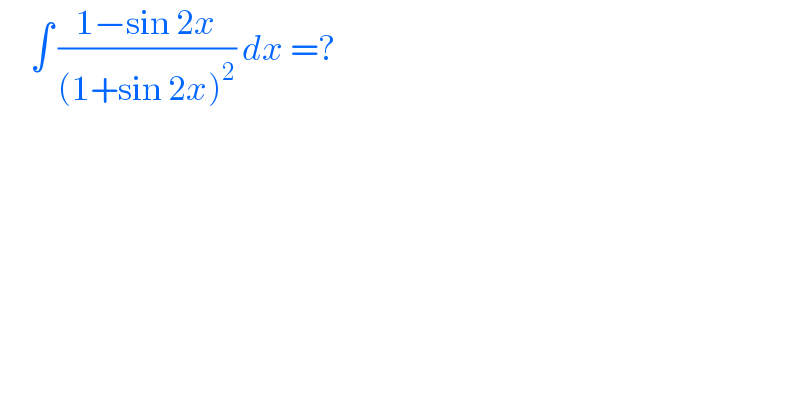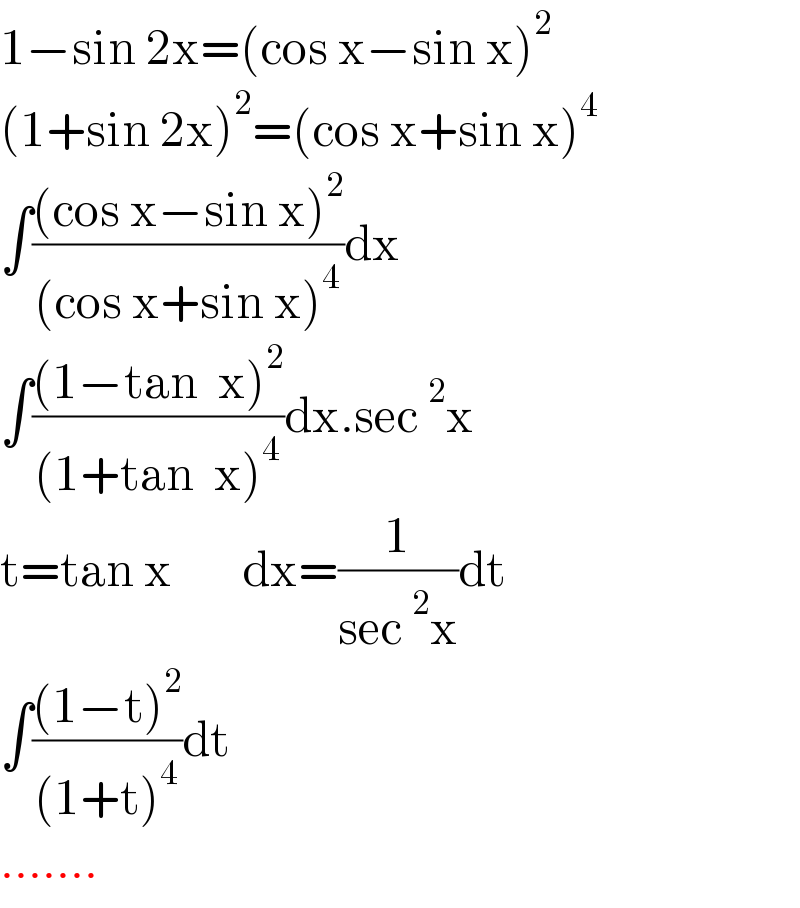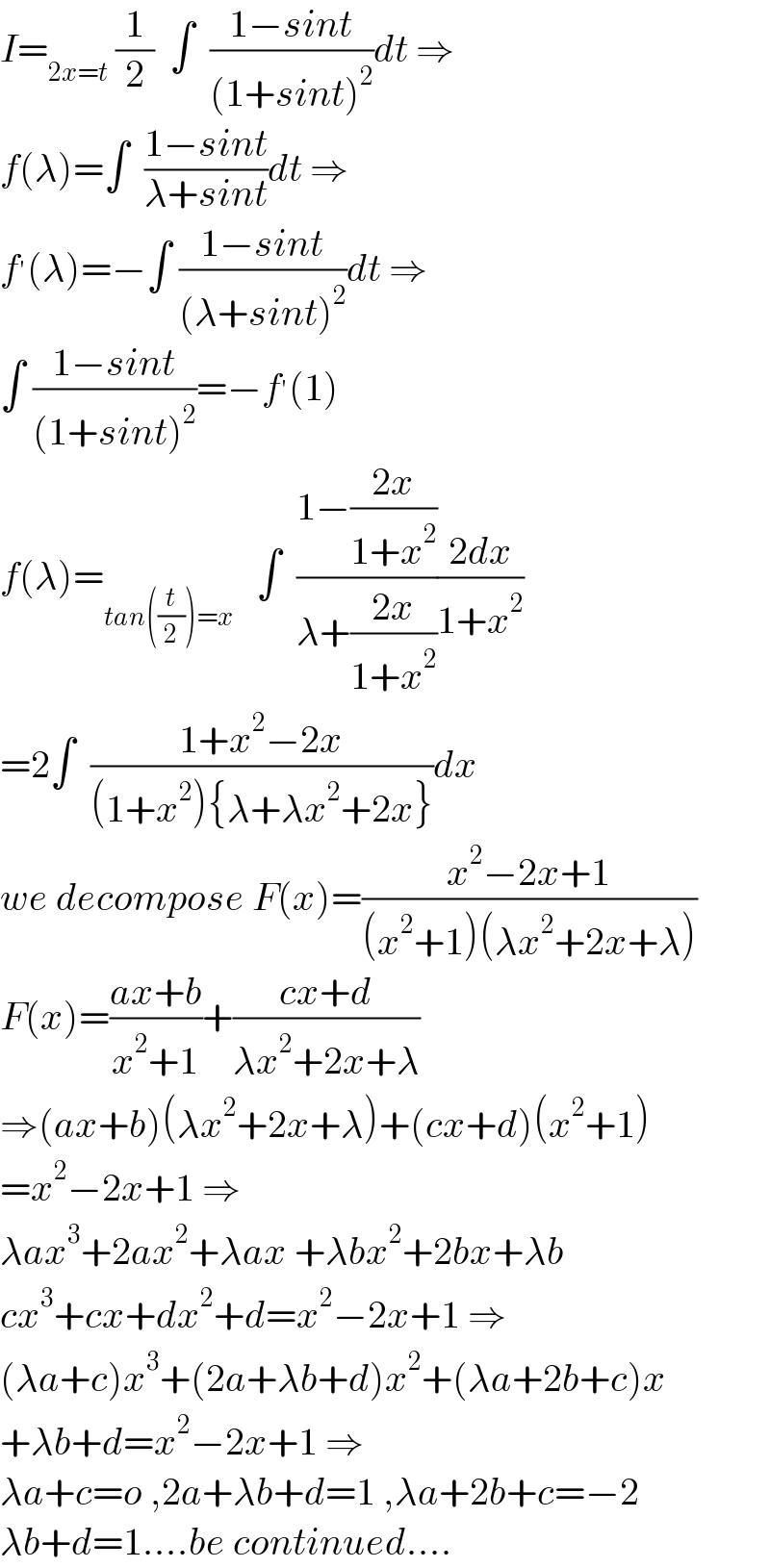
Question and Answers Forum
Question Number 168188 by cortano1 last updated on 05/Apr/22

Commented by Florian last updated on 09/Apr/22

Answered by peter frank last updated on 05/Apr/22

Answered by Mathspace last updated on 05/Apr/22

Answered by MJS_new last updated on 06/Apr/22
![∫((1−sin 2x)/((1+sin 2x)^2 ))dx=∫((2/((1+sin 2x)^2 ))−(1/(1+sin 2x)))dx= [t=tan x → dx=(dt/(t^2 +1))] =∫(((2(t^2 +1))/((t+1)^4 ))−(1/((t+1)^2 )))dt= =∫((4/((t+1)^4 ))−(4/((t+1)^3 ))+(1/((t+1)^2 )))dt= =−(4/(3(t+1)^3 ))+(2/((t+1)^2 ))−(1/(t+1))= =−((3t^2 +1)/(3(t+1)^3 ))= =−((1+3tan^2 x)/(3(1+tan x)^3 ))+C [=−((cos^3 2x)/(6(1+sin 2x)^3 ))+C]](Q168213.png)
Commented by peter frank last updated on 06/Apr/22

Answered by greogoury55 last updated on 06/Apr/22
![T=∫ ((1−sin 2x)/((1+sin 2x)^2 )) dx [ tan x=t → { ((dx=(dt/(1+t^2 )))),((sin 2x=((2tan x)/(1+tan^2 x))=((2t)/(1+t^2 )))) :}] T=∫ ((1+t^2 −2t)/((1+t^2 +2t)^2 )) dt =∫ (((t−1)^2 )/((t+1)^4 )) dt = ∫ ((1/((t+1)^2 )) −(4/((t+1)^3 )) +(4/((t+1)^4 )))dt = −(1/(t+1)) +(2/((t+1)^2 ))−(4/(3(t+1)^3 )) + c = −(1/(1+tan x)) +(2/((1+tan x)^2 )) −(4/((1+tan x)^3 )) + c](Q168226.png)
Commented by peter frank last updated on 07/Apr/22

